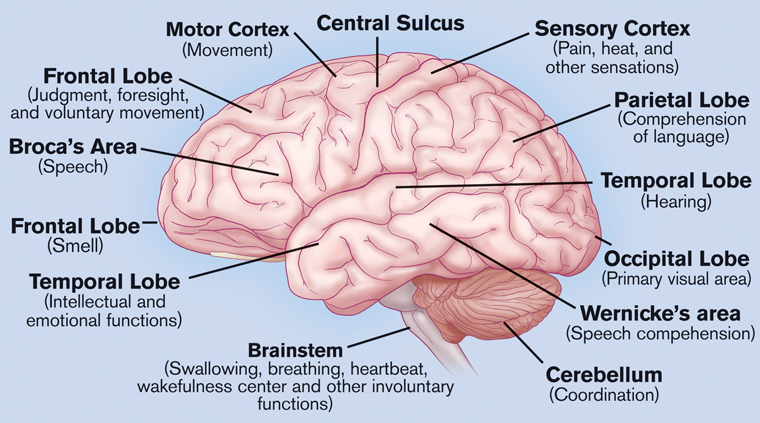
When Orwell penned this slogan in his book “1984” he was addressing political theory, not neuroscience, yet from the perspective of current brain research, he was spot on. Our consciousness is but a sliver of the operation of mind, the rest hidden from our awareness. Turns out “free will” is less of a factor in life than “free won’t”.
As further noted by neuro-scientist David Eagleman in his book “Incognito,” the only way we can properly function is through the mechanism of “zombie programs” that automatically run under the surface of our awareness, and from which our thoughts and actions emerge. The continuous “chatter” of zombie programs is visible during sleep while dreaming, in the form of images and sensory narratives reflecting the operation of subconscious mind. Preoccupied with the narrative of self while awake, such subconscious information recedes from awareness to become what we call “gut feelings” or intuition.
Successful efforts have located specific brain regions responsible for various functions, but the trillions of neural connections within each brain constitute, along with information streaming from the rest of the body, a fully integrated system. Consciousness, it seems, is largely relegated the task of constructing a narrative to navigate through the maze of impulses, feelings, stimuli, events, sounds, colors, textures, tastes and emotions that pour forth continuously on auto-pilot. Lacking “free won’t” to censor and block conscious awareness of our zombie programs, each of us would find ourselves quickly overwhelmed and unable to discriminate objects, actions and events; the rush of information is too great and needs to be hidden for day-to-day survival. In other words, ignorance is strength.
People suffering from brain damage or psychosis often become disabled, and in those without “free won’t” disturbing behavior emerges. Neurologist Oliver Sacks recounted such odd behavior in his book “The Man Who Mistook His Wife for a Hat,” documenting that the need to construct a narrative even extends to those without the brain function to do so coherently. In those of us considered normal, our ignorance runs so deeply what we honestly believe to be real is often not. Thus testimony among eye witnesses is often contradictory, each witness having consciously become aware of only a sliver of events. Moreover, preexisting attitudes and prejudices have been demonstrated to change perception of reality; we see what we expect to see, something every good magician knows.
We like to find causality behind the things that happen, and our narratives pull from unconscious material to do so. Accordingly, buried beliefs and habits of mind feed conclusions. Despite the unknowable complex sequence of events and influences that result in each moment uniquely manifesting itself, we readily find and assign simple blame for what happens. Our emotions are affected by colors, smells, shapes, sounds and tastes, often well below our level of conscious awareness, and our conclusions are shaped and colored by such hidden internal workings. Modern advertising readily takes advantage of these operations of mind and uses a variety of methods to manipulate decision-making.
We can never escape our own ignorance, it is built right into us. Understanding, however, that what we think and feel is just the tip of the iceberg of mind reminds us to maintain our flexibility, patience and willingness to accept that reality, like self, is not a fixed entity but rather a story we construct for ours and others’ satisfaction.